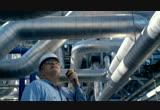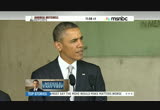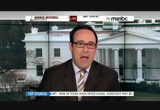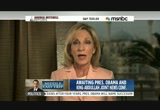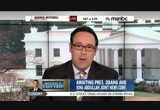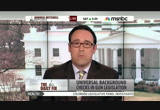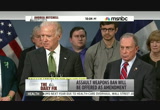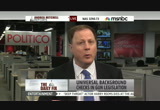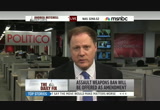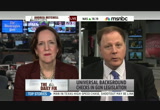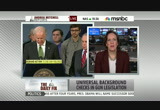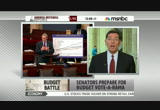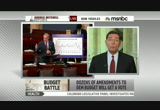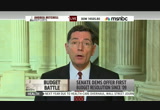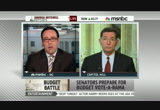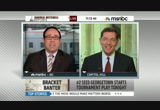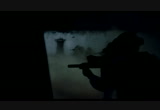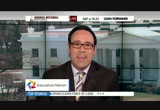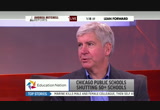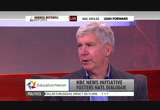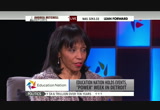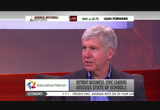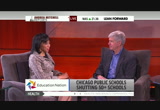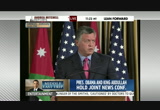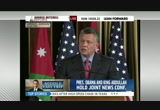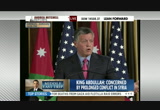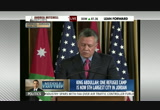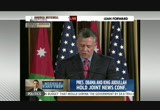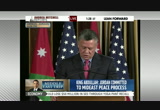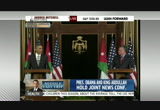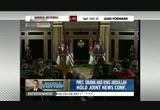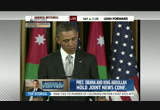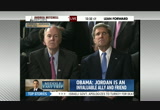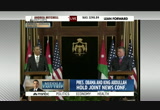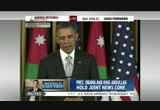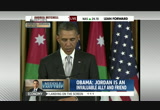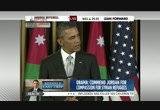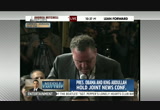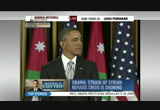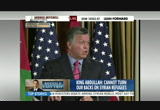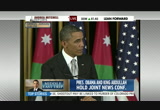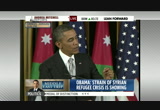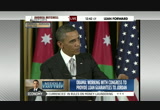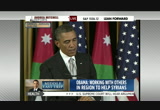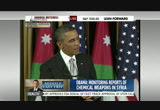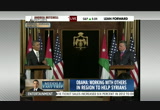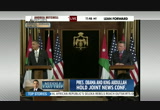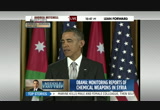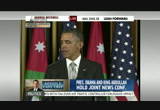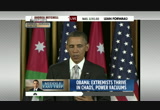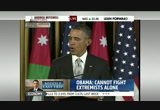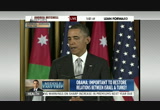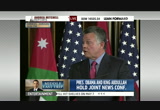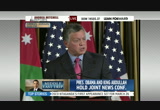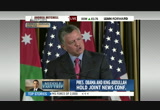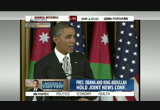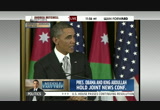tv Andrea Mitchell Reports MSNBC March 22, 2013 10:00am-11:00am PDT
10:00 am
10:01 am
right now on "andrea mitchell reports" -- president obama is in jordan for the final stop on his middle east tour. the focus today, the flood of refugees escaping the civil war in neighboring syria. before arriving in jordan, the president spent the morning touring some of the region's cultural landmarks, including the graves of theodore hertzel, the father of modern zionism and yi itzak rabin. >> this accounting of horror is yet a source of hope. for here we learn we are never powerless, in our lives we always have choices, to succomb to our worst instincts or submit to the better angels of our nature. at home, background checks are in, where is the senate gun bill headed now.
10:02 am
in three years after the landmark health care law, republicans still refuse give up the fight. let's repeal this failure before it literally kills women, kills children, kills senior citizens. >> coming up, health and human services kathleen sebelius, with a reality check on where the law stands today. and new jersey's tough-talking governor faces a tough crowd of his own, a class full of kindergartners. >> i'm a third grader at the elementary school. you've done a great job here in new jersey and i was wondering if you were thinking about running for president. >> softening him up with the compliment and then hit him with the hard-hitting question, love it good day i'm chris slizcilli in washington.
10:03 am
andrea mitchell is traveling with the president in jordan where syriand a the peace process remain the key topics. >> hi, chris, in jordan president obama comes to see king abdullah and reassure a king surrounded by the arab spring, by uprisings on all fronts and most importantly by the widening civil war next door in syria with the refugee crisis. refugees coming across the border to jordan. the u.s. will probably offer some more help on that front. and other problems as well, the increasing fear that the asat regime could duly use chemical weapons against its own people. opening up a possibility that the weapons could get into militant hands. i'm told by sources that the u.s. and israel both have military plans to stop that from happening. and that of course could engage the u.s. for the first time and israel in the civil war, in syria. so there are a lot of things for the king and the president to talk about. but fundamentally, the king
10:04 am
wants to know whether president obama's visit to israel and the west bank means that this administration is ready to engage in trying to restart the israeli/palestinian talks, that's a profound issue, it remains to be seen whether the obama visit in israel, which by all accounts was very successful, really means something on the peace front. on the peace talk front or whether it was just a very successful public relations and photo opportunity. and some very successful speeches. chris? >> thanks, andrea. now we're still awaiting a press conference. do we expect to start shortly between abdullah and president obama in ayman, jordan, we'll bring it to you live as soon as it happens. in the meantime all the action here in washington is focused on the u.s. senate. lawmakers are working through the weekend. finally on a laundry list of amendments attached to the democrats first budget resolution since 2009. and senate majority leader, harry reid, has guaranteed that
10:05 am
universal background checks will be part of a final gun control package. they'll begin debating that when they return from their easter recess. joining me is "washington post" national political correspondent and my colleague, karen tumelty and john morris. my mentor. harry reid focusing on the positive in some way said that this universal background checks will in the bill. what he didn't say is that high capacity magazines, banning those, and the assault weapons ban will not be, they'll be offered as amendments, what does this say about how much the political climate, if at all has changed as it ties to guns, karen, since what happened in newtown, connecticut late last year. >> well harry reid says he's basically counting the votes here. there are not the 60 votes it would take to overcome a filibuster on the tougher measures, i think also that he is looking at the fact that he has some democratic seats up for
10:06 am
re-election in 2014. and in 2014. and in some states that it's going to be very difficult to hold. places like west virginia and arkansas. and so he's, he's really not quite ready. i think to sort of put his members on the line for this. so he will allow these to be offered as amendments from the floor. but there are also likely to be some amendments from the other side. it was interesting, too, to see vice president biden yesterday, up with mayor bloomberg. saying that the white house is basically not giving up this fight. but it sure doesn't seem how you get these things done. >> i thought, i'm glad you made that point. i thought joe biden saying -- remember newtown, pointing his finger, very telling. because particularly joe biden is someone who understands the math of the senate you've just laid out. john, do we, at this point, so now the big piece of the bill now appears to be background checks. can you give me your assessment of the political landscape? does that and the other few things that are attached to it,
10:07 am
including straw purchases, do we get some gun legislation passed that the president and vice president biden can say, see, we did this. we acted when the country wanted us to act. >> i think it's still very problematic. but it's possible some sort of incremental measure will change. i think it is clear, the question that you pose to karen, how much change in the wake of newtown and the answer is not that much. that raise the prominence of this issue. that guaranteed there will be an argument for it what karen said and i agree, the underlying politic force this issue, the reason since the 1990s it was stalled, fundamentally hasn't changed. because in states that the democrats need to compete in, this is a much bigger issue among people opposed to gun control than any possible gain that could come to somebody for taking a risk in passing it. the basic politics of gun
10:08 am
control in this country haven't changed that much. >> it might be a state polling versus a national polling issue. if you look at the national polling, "washington post," everybody's polling has found overwhelming support for universal background checks, bans on high-capacity clips. even assault weapon bans, it's in the 50s, in terms of support. is it just local politics, the electorate doesn't feel that way and that's why the member is voting the way he or she will? >> i think that's exactly right. you could go back to the 1990s and find similar polls, but the 1990s were the decade in which democrats learned to stay the heck away from gun control. because it killed them in the 1994 elections and really i think it was critical even in the 2000 elections. west have a used to be a solidly democratic state. it's not, if you were to point to any single issue as to why that is the case, you would point to this you would point to guns. >> i think there's something
10:09 am
else, too. there's cult rattly something else with this, as with abortion on the anti-abortion side. this is an issue where one side actually votes on the issue. where one side has long memories and where one side has a very intense focus on this issue. i think that those who most people who say they favor gun control, that for them is just, it's part of a smorgabord of issues. >> there are not single-issue voters. people who support gun rights. >> i would like to add to that. a point to what karen said. somebody might be in favor of gun control. so they'll show up on the majority side of that. but they're going to make assumptions about politicians who back gun control. the kind of person who likes gun control, oh, they must be also support x, y, and z, in other words, they're a liberal and i'm not a liberal, therefore i'm not voting for this person. so i think politicians have to look at more than an individual polls, they have to look at how this issue resonates in terms of their broader profiles, how they
10:10 am
electorate will perceive them and in places like arkansas, west virginia. if you're for gun control, people assume all kinds of other things about you that are not going to make you competitive. >> then it winds up being cultural currency in a way, john. >> yes, sir. >> it tells you something more about the person aside from gun control. i want to say one last thing, karen, joe biden in his plea to sort of put the politics aside and vote your conscience. the assault weapons ban based on everything we've heard from harry reid will get an up or down vote on the floor. karen you're expecting some senate democrats to vote against that? >> i assume that will be the case. and especially the ones that are in these particularly challenging states. but this will be an important vote to the democratic base. and i think this is a, a big, big thing that harry reid is throwing to them. that you know, they are going to have their people on record. >> karen tumulty, john harris, thanks for joining me.
10:11 am
>> thanks a lot, chris. if guns are one part of the big conversation on capitol hill, the budget is the other part. joining me for the republican perspective on all the budget activity happening right now on capitol hill is wyoming senator, john brasso, chairman. public policy committee. senator, thank you for taking the time. we're in the midst or about to be in the midst of a vote-a-ramma, 400-plus amendments to the budget.a, 400s to the budget. >> for the lay person, why are we doing this? and is this progress? that we're having this open amendment process? how should the average person watching you guys be there until midnight or 3:00 in the morning, 400 amendments being voted up or down, how should they take it? >> for the first time in four years we're actually on the floor voting on the budget. the democrats even though by law they have to offer one, haven't offered a bumt in the last four years. there are a lot of things we
10:12 am
want to bring as amendments, the democrat budget is one that increases taxes, increases spending and grows the government even bigger. and i agree with the "washington post" -- that said that the democrat budget is not a viable plan. it's not a responsible account of the really the magnitude of the mess that we're in financially and what we need to be facing. so i think it's one of the reasons that you do see 400 amendments. the big amendments that came out and voted for last night was the one to repeal part of the health care law. the part that deals with the specific tax on medical devices. 79 members of the senate voted in favor of it. including 34 democrats. and none of them were breaking ranks before the president was re-elected. now you're hearing more and more complaints about the health care law. >> senator, i want to ask you, you use the phrase, the senate budget not being a viable plan. >> that was the "washington
10:13 am
post's" assessment of it. >> the same criticism has been labeled to the paul ryan budget, which uses as part of its calculation, defunding broadly, president obama's health care law. which i think, i think we probably can agree, is not likely to happen. if both sides are offering budget proposals that are nonviable. how do we get to a budget proposal that is viable, do you expect that to happen? >> well, i think it's important for our country that we do. and the thing that's, that i think is so important about paul ryan's budget is that it actually becomes a balanced situation. where you have a balanced budget. the democrat proposal -- never balances, not this year, not in ten years. never. and american families realize they have to live within their means, they can't spend money they don't have. they understand the concept of a balanced budget and i was back in wyoming last weekend, the people at home still believe that over half of all the money they send to washington is wasted. so the concerns are that these budgets that we see specifically
10:14 am
the democrats' budget, it's more, it's inefficient, it's ineffective, unaccountable to the american people. >> senator, i want to talk to you, president obama before he left very sort of highly publicized charm offensive, call it what you will, but dining with senators, phone calls to paul ryan, phone calls to other people. he has been abroad, will be returning shortly. do you expect and should that continue, the one-on-one or small group work with president obama? and i would say beyond the pleasantries, which, look, i grant that having dinner is better than not having dinner, but beyond the pleasantries, there are as these budgets make clear, vast differences, philosophically and policiwise between these two parties. can the president, through fours of political will, bridge that divide? >> well i think it's important that he continues to reach out to members of the house and the senate, on both sides of the aisle. republicans and democrats alike. at a time of divided government, that's a time to really solve
10:15 am
the big problems. and i think it's important and we told the president at lunch last thursday, that we think it's critical that we take a look at social security and medicare and make sure those programs remain viable for the people if them now and the next 75 years, so that all americans will feel secure and can go on to other parts of their lives and not just focus on their worries about their own retirement and their own health care under medicare in their senior years. >> i want to end on something that i know you and i agree on. as a fellow georgetown hoya graduate, i know you'll be rooting tonight for our boys against florida's gulf coast. >> i have them all the way in the final four. >> i have wyoming in the n.i.t. >> thank you, sir. >> thanks. we are still awaiting the president's joint news conference with jordan's king abdullah, stay with us for live
10:16 am
coverage on msnbc. the capital one cash rewards card gives you 1% cash back on all purchases, plus a 50% annual bonus. and everyone but her... no. no! no. ...likes 50% more cash. but i don't give up easy... do you want 50% more cash? yes! yes?! ♪ [ male announcer ] the capital one cash rewards card gives you 1% cash back on every purchase, plus a 50% annual bonus on the cash you earn. it's the card for people who like more cash. ♪ what's in your wallet? why? and we've hit the why phase... why? some people will do anything to help eliminate litter box odor. ♪ discover tidy cats pure nature. clumping litter with natural
10:17 am
cedar, pine, and corn. i'm your hot water heater. you hardly know i exist. that's too bad. 'cuz if my pressure relief valve gets stuck... [ booooooom! ] ...we hot water heaters can transform into rocket propelled wrecking balls. and if you got the wrong home insurance coverage, it's your bank account that might explode. so get allstate. [ dennis ] good hands. good home. make sure you have the right home protection. talk to an allstate agent. [ male announcer ] this is a reason to look twice. the stunning lexus es. get great values on your favorite lexus models during the command performance sales event. this is the pursuit of perfection. but i'm still stubbed up. [ male announcer ] truth is, nyquil doesn't unstuff your nose. what? [ male announcer ] alka-seltzer plus liquid gels speeds relief to your worst cold symptoms plus has a decongestant for your stuffy nose. thanks.
10:19 am
we're awaiting president's joint news conference with jordan's king abdullah. in the meantime, some 50 chicago public schools have been put on notice that at the end of the school year, they will be shut down. to try to close a $1 billion budget shortfall. the school district's ceo and chicago mayor, rahm emanual, say the closures are needed because there are too many schools with too many open seats. the move will affect some 30,000 children. the school closings in chicago, aren't an isolated event. fill larks newark, new jersey, washington and detroit have all closed schools to cut budget deficits. and that brings us to education nation. which is part of an ongoing
10:20 am
commitment by nbc news, to foster a national dialogue about the future of education in america. today education nation is on the road in detroit with he had nbc's education correspondent, rehema ellis. >> we want to talk about what's happening to the schools in michigan. but in detroit, we can't help but talk about what's happening in the city of detroit. joining me right now is the governor of michigan, rick snyder. and the news of the day is that on monday, your emergency financial manager for detroit is going to go to work. there's a lot of controversy around it. people are protesting, saying it's unconstitutional. that he's going to sell off some iconic pieces of the city in order to balance the budget. what do you say? >> well it is legal. this is a crisis. and we need to turn it around. and if you look at, we've had success with emergency managers. if you look at detroit public schools, they've had one for the last several years and we're seeing the kids learn better now. flint and pontiac have emergency
10:21 am
managers, working with mayors. let's work with the mayor, the city council, detroit has a lot of things going on in the private and nonprofit sectoror, let's turn around city government and let's go and grow in detroit. >> the president talked about in his state of the union address, about the importance of early childhood education, you're committed to that here in michigan as well? >> absolutely that was a big part of my budget message. i propose doing much the same thing, we're going to get the kids in early childhood programs because it's important for the long-term. >> you're making changes as far as education is concerned, overall, you've seen improvement in test scores, attendance and graduation rates, they're small, but people say you're moving in the right direction. slow progress, but you hope steady progress. >> this is the earl will i stages, we have a strategy, it's about p-20, pre-natal through lifelong learning. the goal of an educational system is to help them grow and get a career. and self-enrichment. >> this is not just an education issue but an economic issue, even if you don't have children,
10:22 am
it's important that something happen. >> it ties to that career point. one of the things we're going to do is match up the supply and demand of talent. the private sector has the demand for talent. the education sector is helping create the talent. let's connect those two worlds and be a better place. >> people won't know but we've been streaming this live on education nation.com. one of the things we learned on the panel is if people don't pay for education now, they'll pay for children later. because of what may happen with those kids that are uneducated do you see it that way as well? >> i see it that way. it's not just pumping more money in the education system, it's making sure we're getting results. and doing that on a performance-based fashion, to say the kids are learning and to focus on continuous improvement to show real results with student growth. not just about money in the system. >> it's about quality education. so it's a quality of the teachers, the evaluation, the resources that the students have as well? >> absolutely. we have great people in the system. we need to be focused more on performance and results and focused on the kids more. >> what do you say about those
10:23 am
concerned about the lift of the cap on charter schools that you did here in the state of michigan. some people think that it's, it's the beginning of the end of traditional public schools. >> not at all. i'm a big advocate, i'm a product of public education. i view it as a case of saying it's good to have choice and let's keep on raising the bar for all schools. to say they all need to meet a high benchmark to show results. because it's about kids again. >> you know governor, we're an impatient society. people are looking for results and they want them now. what do you say to people who say why don't we see even greater results in terms of progress now? is this the beginning of a very long road to changing the schools around? >> well i think you'll see it in accelerating road. as it catches on, it will take off. if you look at it, we had the educational achievement authority here in detroit. they're showing tremendous results already. if you go talk to the kids about the school experience last year versus this year, you're going to see a big difference, it strikes you in the heart. this isn't about numbers, this is about kids. and it's great to see the growth come. and we can't give up on it. we've got to keep accelerating.
10:24 am
>> as chris said, in introing this, there's concern about the shutdown of schools, not just here in detroit and michigan, but in chicago, in philadelphia, los angeles. what do you say to people concerned and worried and protest the shutdown of their schools? and who are worried about that creating even more instability in communities that are already unstable? >> well i think there's an opportunity to turn that around. and that's one thing we're doing in michigan that i think is really cool and unique. we have program called pathways to potential. we're putting more things in the schools that are still open. we're actually putting social workers, case workers in the schools so they can be closer to their customers. this is about good customer service, in the neighborhoods. health clinics, i want to lay more and more services into that school building because it will create a better environment for success and help keep that neighborhood solid and grow things. >> governor snyder, thanks so much for talking with us. chris, back to you. rehema, governor snyder, thank you. and you're looking live at ayman, jo
10:25 am
o oman, jordan. here are president obama and king abdullah of jordan. this is the final country that president obama will visit on his middle east trip. let's go to them now. >> all jordanians to welcome you and your distinguished delegation back here in jordan. i fondly remember your visit here several years ago when you were a senator, it is a great delight to welcome you back to jordan as the president of the united states enjoying your second term. we're delighted with the in-depth discussions that were very, very fruitful on the strategic and historic partnership. and you've been an old friend as has the united states for so many decades. we are very grateful, to you, sir, and the administration as well as congress and the american people for the continuous support that has been shown to jordan over so many years. and the u.s. assistance that has helped us throughout so many years, has allowed us to get
10:26 am
jordan where we are today. and hopefully will continue to help us advance our shared goals of development, security and regional peace. we did have the opportunity to discuss syria. and obviously we are all horrified by the loss of life and the brutality of the conflict. >> sectarian conflict that if it continues, as we're seeing, it leads to the fragmentation of syria. which obviously will have disastrous consequences on the region for generations to come. therefore, it is immediate, it is important to have immediate need for an inclusive political transition, that ends the conflict and the threats that emanate from it. what we are facing now today obviously is an urgent need for international community to help in humanitarian assistance, to catch up to the challenges that
10:27 am
we're facing as the countries bordering syria. not only do we need to look at the ability to stockpile humanitarian supplies to the syrian people inside their country, but also to be able to assist those that have fled. jordan today is hosting by far the largest number of syrian refugees. the numbers have just exceeded 460,000 syrians. that is 10% of our population. and the alarming figures, if the rates continue as we're seeing today, will probably double by the end of the year. so if the americans in the audience, that's the equivalent of 30 million refugees crossing into the united states. with the possibility of that going up to 60 million by the end of the year. relative obviously to our populations. the refugee camp today is the fifth largest city in jordan. and obviously this has added
10:28 am
economic and financial costs due to the influx. and has further strained the economy that is already under considerable external pressures. with an unstable region, a sluggish global economy that is still recovering. but having said that as i already alluded to, we are so grateful to the u.s. assistance in shouldering this enormous responsibility and more help in fatesing this humanitarian calamity. we had the opportunity to talk about the peace process and we're very delighted by the vision and the depth of wisdom that the president showed over the past several days in his trip with the israelis and the palestinians. obviously i reiterate jordan's commitment to the peace process. and the crucial importance of u.s. leadership in resuming the palestinian/israeli negotiations based on the two-state solution. there is simply no other
10:29 am
formula, no other alternative. the two-state solution is the only way to go. and if you compare that also with the radicalization of syria, together with the impasse in the peace process, this is going to be a serious threat to an already-volatile region. i believe there is a window of opportunity to make serious push for resuming negotiations. on the final status issues, but the window is fast closing, primarily due to increasing settlement activities, so there is no time to waste. and lastly, i had the opportunity with the prime minister designate to share details of jordan's home-grown reform model and its supporting road map. we believe that we have a model that is, has a clear end goal of parliamentary government with milestones and prerequisites built on a strong democratic institutions that guarantees
10:30 am
checks and balances of proper democracy. and empowered parliament and a new constitutional court. we also have a new independent elections commission. and we are looking at jordan as a model that is evolutionary. consensual and peaceful. and insures pluralism, openness, tolerance, moderation and unity. and equally as important, a level playing field. this will insure safe guards for civil liberties and political rights and obviously encourage political participation. today we're looking to our prime minister designate forming his parliamentary government hopefully in the next couple of weeks. based on his consultations with parliament. which is an extension of the same consultation process that led to his designation as result of receiving the highest number of nominations. so i'm very proud of the progress so far. the hard work is definitely ahead of us.
10:31 am
this is the jordanian model. what we're saying as the third way in the middle east. what we are saying that the arab spring is behind us, we in jordan are looking now at the arab summer for us all. which means that we all have to roll up our sleeves, it's going to be a bumpy and difficult road, but i am very encouraged with the process and i am very excited about the future. so again, mr. president, very welcome to jordan, i wish you all the success in what you've been able to achieve in the past several days and i hope the success will continue in your visit here to jordan, thank you. >> thank you very much. well it's a great pleasure to be back in jordan. i'm grateful to my good friend, his majesty. king abdullah. thank you for your kind words, thank you for the jordanian people for the extraordinary warmth and hospitality that i remembered well from my first visit as a senator. the thing i mainly remember when i came here was that his majesty was kind enough to personally drive me to the airport. i won't tell you how fast he was
10:32 am
going, but secret service, i don't think could keep up. so nevertheless. we're very much appreciative for you welcoming me and my delegation. the reason i'm here is simple, jordan is an invaluable ally. it is a great friend. we've been working together since the early years of the kingdom. under his majesty's great grandfather, king abdullah i, who gave his life in the name of peace. today our partnership in development, education, education, health, science, technology, improve the lives of our peoples, our close security cooperation helps keep your citizens and ours safe from terrorists. i'm especially grateful to his majesty who like his father, memorialized by the mosque i saw when i arrived, is a force for
10:33 am
peace in word and in deed. you've invested deeply and personally in strengthening the ties between our countries, that's why you were the first arab leader i welcomed to the oval office when i became president. and i very much appreciate the work we've done together on a broad range of challenges. so i've come to jordan to build on what is already a very strong foundation and to deepen what is already extraordinary cooperation. as his majesty mentioned, tooed was a chance for me to hear from him about the necessary political reforms under way here. i want to commend the people of jordan about this year's parliamentary elections which represent a positive step toward a more transparent and credible and inclusive political process. i appreciated hearing his majesty's plans for a parliamentary government that responds to the aspirations of the jordanian people and i very much welcome his commitment to active citizenship. where our citizens play a larger role in the future of this nation. at a time of so much change and tumult across the region, i
10:34 am
think his majesty recognizes jordan has a great opportunity to show the benefits of genuine and peaceful reform. including stronger political parties and good governance. and transparency, all of which makes government more effective. and makes sure that the people feel a connection to their government. your majesty, you've been a driving force for these efforts. and you can be assured that the united states will continue to work with you and prime minister ansur as you build on this progress. we also discussed the economic progress that has to come with political progress. the jordanian government is working hard to manage its current budget challenges. i think his majesty outlined the enormous pressures that jordan is experiencing often not because of any factors internal, but rather a range of external factors as well. and i recognize that while the economic reforms are difficult,
10:35 am
they are essential over the long-term to creating the kind of growth and opportunity and dynamism that will help the jordanian people achieve their dreams, we want you to succeed. my administration is working with congress to provide loan guarantees to jordan this year. together i believe we can help deliver the results that the jordanians deserve to see their schools better. their roads improved. health care, clean water, all enhanced. training that i know a lot of jordanians seek. particularly young people to get a job or to turn entrepreneurial skills into a business that creates even more jobs. i was proud to welcome some young jordanians to the entrepreneurship i hosted in washington. we're going to continue to focus on economic opportunities to the people here in jordan and opportunities for people everywhere. we spend a good deal of time, i updated his majesty --
10:36 am
[ inaudible ] president abbas, as i said in my speech yesterday, i believe there are steps that both sides can take to build confidence and trust and move a serious negotiation forward. we're not there yet, but i'm confident that it can happen. in part because it must happen. it will be good for the israelis and it will be good for the palestinians. i'm very grateful for his majesty's readiness to advance these efforts, as has been true in the past, his majesty and jordan will be critical to making progress towards a just and lasting peace between israelis and palestinians. we spent a significant amount of time consulting on syria. i want to commend his majesty for his leadership and i want to commend the jordanian people for their compassion during the extraordinarily difficult time for their neighbors. his majesty was the first arab leader to publicly call on assad to step down because of the horrific violence that was being
10:37 am
inflicted on the syrian people. jordan has played a leading role in trying to begin a political transition toward a new government. while working together to strengthen a credible, syrian opposition. we share jordan's concerns about violence spilling across the border. so i want to take this opportunity to make it clear the united states is committed to the security of jordan. which is backed by our strong alliance. as has been mentioned during this crisis, the jordanian people have displayed extraordinary generosity, but the strains of so many refugees inevitably is showing. every day -- [ inaudible ] >> to neighbors far from home, but this is a heavy burden. and international community needs to step up to make sure that they are helping to shoulder this burden. the united states will certainly do our part. we are already the single
10:38 am
largest donor of humanitarian assistance to the syrian people. some of this has helped people here in jordan. and today i'm announcing that my administration will work with congress to provide jordan an additional $200 million in budget support this year as it cares for syrian refugees and jordanian communities affected by this crisis. more humanitarian services, including education for syrian children so far from home whose lives have been up-ended. as parents we can only imagine how heartbreaking that must be for any parent to see their children having to go through the kinds of tumult that they're experiencing. our cooperation on syria is an example of how the partnership between the united states and jordan improves the lives not only of the jordanian
10:39 am
people, but peoples across the region. so again your majesty, i want to express my great appreciation for our partnership. i want to thank you and the jordanian people for the friendship and the hospitality that they've shown me. and to my fellow americans. just as i visited the citadel here in amman on my last visit, i'm looking forward to seeing petra tomorrow. weather permitting. one of the great wonders of history. that the world can experience, thanks to the care and dedication of jordan and its people. so thank you. >> thank you, your majesty. mr. president. i'm going it ask you, your majesty, for how long are you going to keep your reporters open for the syrian refugees?
10:40 am
next to you is a land of war. and anything could happen any time. if the regime let's say electricity or the water, you're not too far from the damascus, the capital. it's like you might find 1,000 of refugees. not just the number that you spoke about to your majesty and mr. president. thank you again and i just want to know, you are a superpower, are you leading the superpower the united states of america. you don't have a plan to put an end for what's going on in sir yarks the bloodshed, the killing and now they're talking about using the chemical weapon. what's your comment about that? thank you. >> first of all, the problem with refugees comes down to a humanitarian issue. how are you going to turn back
10:41 am
women, children and the wounded? this is something that we just can't do. it's not the jordanian way. we have historically opened our arms to many of our neighbors through many decades of jordan's history. so that is a challenge that we just can't turn our backs on. so that's the reality that we're facing on the ground. so jordan has always been a safe haven to people around us. through many, many decades. so unfortunately from that point of view. refugees will continue to come to jordan and we will continue within our means to look after them as best we can. the problem is obviously that the burden it's having on jordan. we've tried to quantify it as much as possible the latest figures is it's going to cost us roughly $550 million a year. but if those figures double as we think they will, by the end of the year, then obviously we're talking a billion plus. not only is that a problem, but it's going to be a tremendous strain obviously on
10:42 am
infrastructure, and it's creating social problems and security problems. so this is one of the reasons that we're asking for the international community to help. but physically, you can't turn away. young children, women, people in desperate needs. so we will continue to burden that responsibility. >> since the start of the situation in syria, we have stepped up. as not just a super power as you've phrased it, but also because of basic humanity, saying that assad needed to go. we haven't just led with words, but we've also led with deeds. as i indicated we're the single largest humanitarian donor to the syrian people. we have worked diligently. in cooperation with the
10:43 am
international community to help organize and mobilize a coalition that's credible. because in the absence of a credible political opposition, it will be impossible for us to transition to a more peaceful and more representative and legitimate government structure inside of syria. and that's an area where we have been involved on almost a daily basis. first second hillary clinton helped to pespearhead the effor to form a coherent syrian opposition council. now you've got secretary kerry, deeply involved in that effort as well. we're providing not just advice, not just words, but we're providing resources, training, capacity in order for that political opposition to maintain links within syria and to be able to provide direct services to people inside of syria, including the kinds of relief
10:44 am
efforts that obviously we're seeing here in jordan. but there are a whole bunch of people internally displaced inside of syria who need help. i think that what your question may be suggesting is why haven't we simply gone in militarymilit. i think it's fair to say that the united states often finds itself in situation where it goes in militarily then it's criticized for going in militarily and if it doesn't go in militarily. then people say why aren't you doing something militarily? and my response at this stage is to make sure that what we do contributes to bringing an end to the bloodshed as quickly as possible. and working in a multi laterlat context, in an international context, because we think our experience shows that when we
10:45 am
lead, but we are also working with others, like the jordanians, like the turks, like other interested parties in the region, then the outcomes are better. when we are working with the syrians themselves, so that this is not externally imposed. but rather something that is linked directly with the aspirations and hopes with the people inside of syria, it will work better. so we are going to continue to use every lever and every bit of influence that we have to affect the situation inside of syria. you mentioned the issue of chemical weapons. we have called for and we know that the u.n. is moving forward on investigation of what happened. we're monitoring the situation ourselves. i have said publicly that the use of chemical weapons by the assad regime would be a game-changer from our perspective. because once you let that
10:46 am
situation spin out of control, it's very hard to stop and can have enormous spillover effects across the region. and so we are going to continue to closely consult with everybody in the region and do everything we can to bring an end to the bloodshed and to allow the syrian people to get out of a leader who has lost all legitimacy because he is willing to slaughter his own people. and i'm confident that assad will go, it's not a question of if, it's when. and so part of what we have to spend a lot of time thinking about is what's the aftermath of that. and how does that work in a way that actually serves the syrian people. and by the way, serves the syrian people from all walks of life. from all religious affiliations.
10:47 am
because one of the things we know is happening in this region is that if we fail to create a model in the arab world, in which people can live side by side, regardless of whether they're sunni or shia or drews, or regardless of the manner in which they worship their god, if we don't create that possibility, then these problems are going it recur again and again and again and again. i think his majesty understands that. i think the people of jordan understand that. and these kinds of sectarian and tribal fault lines are part of what what we have to get beyond. because they don't work in a modern world. they don't create jobs. they don't put food in the
10:48 am
mouths of children this he don't provide an education. they don't create a thriving economy. and that's going to be a central challenge. not just in syria. but across the region and the united states. i think has something to say about that. because part of what makes us a superpower is because we have people of every walk of life. every background, every religion. if they've got a great idea and they're willing to work hard, they can succeed. that's got to be something that's more consistently spoken about. not just with respect to the syrian situation. but i think with respect to this enormous moment of both promise, but also danger in the arab world. and in north africa. julie pace? >> thank you, mr. president. you mentioned the aftermath of the assad regime. there's a lot of concern in jordan and elsewhere that the upheaval in syria is creating havens for extremism. how concerned are you at this point that extremists or
10:49 am
jihadists could actually take over in syria and perhaps be even worse than assad? and i was hoping could give us insight on how you brokered the call between prime ministers erdogan and netenyahu and how much of their talk is driven by the urgency in syria. and your majesty, you've offered assad asylum, which he rejected. does the offer of asylum still stand? thank you. >> i am very concerned about syria becoming an enclave for extremism. because extremists thrive in chaos. they thrive in failed states, they thrive in power vacuums. they don't have much to offer when it comes to actually building things. but they're very good about exploiting the situations that are no longer function. they fill that gap.
10:50 am
and that's why i think it's so important for us to work as an international community. to help accelerate a political transition that is viable. so that a syrian state continues to function. so that the basic institutions can be rebuilt. that they're not destroyed beyond recognition. so that we are avoiding what inevitably becomes syrian or sectarian divisions, because by definition, if you're an extremist, you don't have a lot of tolerance for people who don't share your beliefs. >> so this is part of the reason why for the american people we've got to recognize we have a stake here. we can't do it alone. and the outcome in syria is not going to be ideal even if we execute assistance and coordination and our planning
10:51 am
10:52 am
freedom and opportunity. and democracy. and the capacity to live together and build together. that's what we have to begin planning for now. understanding that it is going to be difficult. something has been broken in syria and it is not going to be put-back together perfectly immediately any time soon. even after assad leaves. but we can begin the process of moving it in a better direction and having a cohesive political opposition is critical to that. with respect to the conversation that took place between prime minister netanyahu and prime minister, i have long said that it is in both the interests of israel and turkey to restore normal relations between two countries that have historically had good ties. it broke down several years ago
10:53 am
as a result of the flotilla incide incident. for the last two years i've spoken to them about why this rupture has to be mended. but they don't have to agree on everything. in order for them to come together around a whole range of common interests and common concerns. during my visit, it appeared that the timing was good for that conversation to take place. i discussed it and both agreed that the moment was right and fortunately, they were able to begin the process of rebuilding normal relations between two very important countries in the reasoning. this is a work in progress. it is just beginning. as i said, they're going to have
10:54 am
some significant disagreements between turkey and israel. not just on the palestinian question but on a range of different issues. but they also have a whole range of shared interests and they both happen to be extraordinarily strong partners and friends of ours. and so it is in the interests of the united states that they begin this process of getting their relationship back in order. and i'm very glad to see that it's happening. >> i think the question is something he has to answer. first would he be interested in asylum and he would be interested in coming to jordan. from our point of view, we're saying that we need an inclusive transition to scriptures as soon as possible. so if the issue ever came up, that's something all of us would have to put our heads together and figure out if that ends the violence quickly. it is something worth pursuing. it is a question slightly beyond my pay grade at this staining.
10:55 am
something that i'm sure if it ever came up would be something that we discussed at the level of an international meeting. >> your majesty, last year jordan managed to break the impasse in the peace process by hosting the talks bringing israelis and palestinians together at the negotiating table. now, do you have anything in mind or are you going to have any similar effort? mr. president, would you support any such effort, but particularly we know that the two sides need to be prodded back to the negotiating table. thank you. >> well, at this stage, obviously last year we kept israelis and palestinians, the dialogue going simply because we wanted to keep the process alive as much as we could. knowing full well that we are
10:56 am
waiting for this opportunity. the president has, i think, finished a very successful visit to both the israelis and the palestinians. we have been in close contact with the state department leading up to this visit and i think secretary kerry has been very right in keeping expectations low so that what i call the homework stage is still in effect. obviously, we are all consulting at this stage, how to build on this visit and i believe that as we all share notes, we'll have a better understanding over the next several weeks, what is the next step. jordan's role is to be there as a facilitator and to support them and bring them closer together. so i believe in the next several weeks to this next several months, we'll have the homework or the framework that allows both sides to come together to move forward. so jordan obviously will welcome hosting the israelis and palestinians together if that's what they want. and we have always been in a support mode for both sides.
10:57 am
and as i said earlier, we see a window of opportunity. and i believe the statements that the president has made to the israelis and to the palestinians is an opportunity to regalvanize the effort. and one that we will stand by and support mode as we compare notes of the president's visit to the three countries. >> first of all, i think his majesty described what i've tried to accomplish on this trip very well. this is a trip to make sure i'm doing my homework. we all recognize how vital it could be to see a resolution of the israeli/palestinian conflict. we set expectations low precisely because there is been a lot of talk over decades, but it hasn't produced the results that everybody wants to see. and so my approach here has
10:58 am
been, let me listen to the parties first. let me find out exactly what the road blocks are for progress. let me discuss with them ways that we might move those road blocks out of the way in order to achieve a concrete result. and i've been modest because frankly, peace will not be achieved unless ultimately the parties themselves want peace. i think all of us in the international community share this frustration. why can't we get this problem solved? i think the israeli people are frustrated that they feel this problem is not solved. they don't enjoy the isolation that has resulted from this conflict. i think the palestinian people certainly feel that frustration.
10:59 am
as i mentioned in my speech yesterday, i had the opportunity to meet with young people who are growing up unable to do the basic things that a free people should expect they should be able to do. simple things like travel, or enjoying the kinds of privacy in their own homes that so many of us take for granted. and these are children, these are young people, young men and women who as i described yesterday aren't very different from my daughters. and they deserve the same opportunities. they deserve this cloud to be lifted from their lives. because they can achieve. and they have enormous nt
162 Views
IN COLLECTIONS
MSNBC West Television Archive
Television Archive  Television Archive News Search Service
Television Archive News Search Service  The Chin Grimes TV News Archive
The Chin Grimes TV News Archive 
Uploaded by TV Archive on

 Live Music Archive
Live Music Archive Librivox Free Audio
Librivox Free Audio Metropolitan Museum
Metropolitan Museum Cleveland Museum of Art
Cleveland Museum of Art Internet Arcade
Internet Arcade Console Living Room
Console Living Room Books to Borrow
Books to Borrow Open Library
Open Library TV News
TV News Understanding 9/11
Understanding 9/11